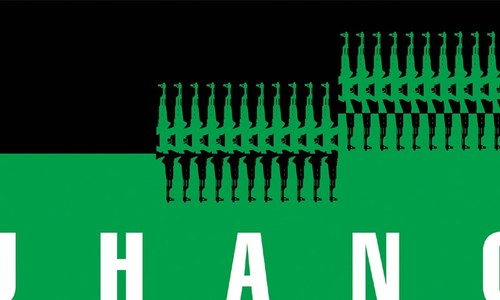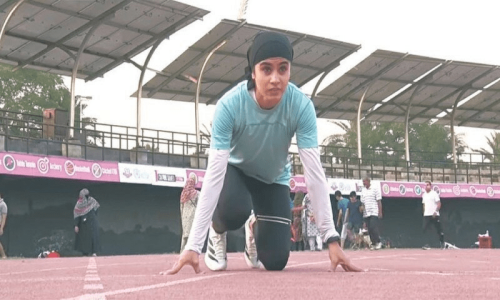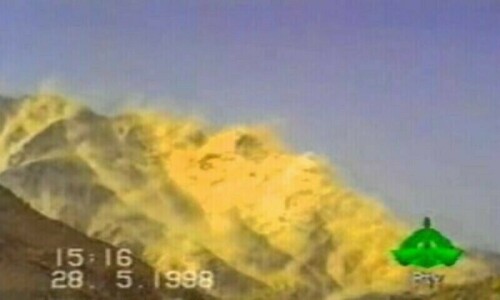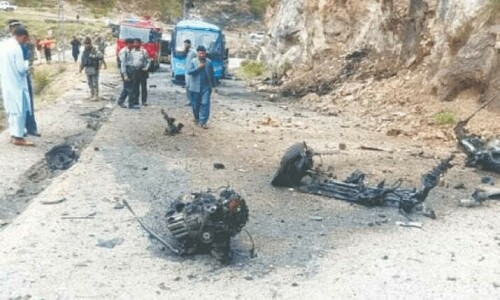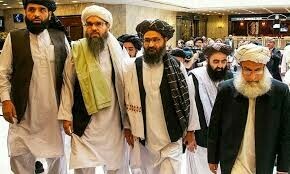Masroor Nawaz Jhangvi said he has become more moderate and distanced himself from his previous anti-Shia rhetoric after winning a regional assembly seat.
Jhangvi's December election to the Punjab provincial assembly caused a stir in due to fears his political ascent would increase sectarian divides in Jhang, a dusty town with a history of violence between its resident Shia and Sunni communities.
The 29-year-old is also on a list of people with suspected ties to militant groups. Jhangvi's assassinated father, Haq Nawaz Jhangvi, was a fierce anti-Shia cleric who founded the now proscribed Sipah-i-Sahaba Pakistan. He was killed in 1990.

The banned Lashkar-e-Jhangvi, which has carried out some of the worst sectarian attacks in Pakistan's history, was named after his father.
“Responsibility has fallen on my shoulders, now I am representative of all the people of Jhang,” Jhangvi told Reuters in an interview last week during an hours-long tour of his home town.
“I consider everybody to be human, and I want peace in Jhang and in Punjab,” Jhangvi added.
The proscribed Ahl-e-Sunnat Wal Jamaat (ASWJ) strongly backed Jhangvi during the election but the bearded cleric denies being a member of the group.
In the Punjab assembly, Jhangvi has joined the far right religious party Jamiat Ulema-i-Islam-Fazl (JUI-F).
Jhangvi distanced himself from sectarian video clips by saying they were several years old.
But when asked if he regretted making inflammatory comments about Shias in the past, Jhangvi smiled and said “no comment”.
One prominent Shia resident in Jhang said Jhangvi did not run a sectarian campaign and has portrayed himself as a de-radicalised figure, even managing to win some Shia votes in the Dec 1 election.
“Time will prove whether it is genuine deradicalisation and a departure from the past or whether it's based on political expediency,” added the resident, who did not wish to be identified.
Amid the rubbish-strewn streets of Jhang, Jhangvi is mobbed by residents wanting to shake his hand, or take a selfie with him.
He has promised them freshly paved roads and badly needed sewage pipes.
“People of Jhang have been ignored for too long,” Jhangvi said during a visit to a Christian area of the town.
Jhangvi said the police had been “harassing” him since his electoral victory and a senior police officer from the town ended the interview with a demand that a Reuters reporter stop talking to Jhangvi and leave town.




